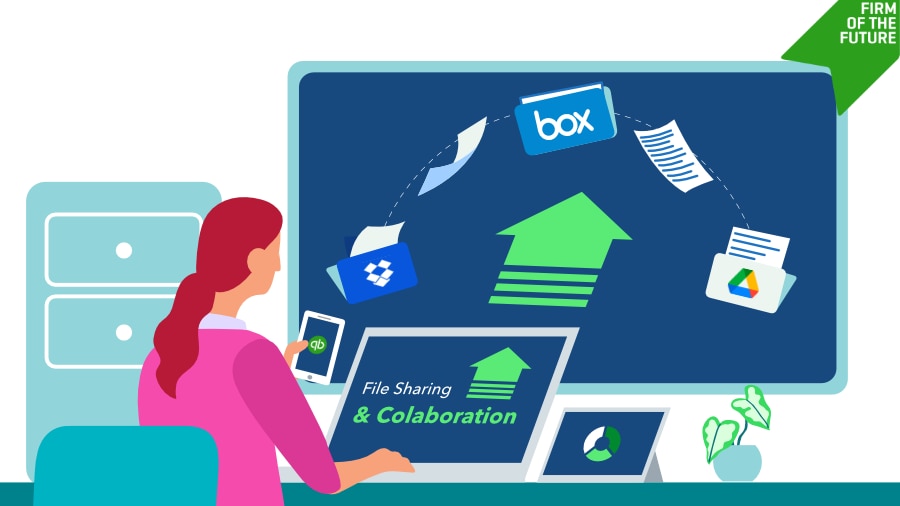As cyber threats continue to grow, accountants and bookkeepers should ensure that any kind of breach does not compromise sensitive financial information. Since COVID-19 started, cyberattacks on accounting firms shot up by a whopping 300%.
Firms handle sensitive data, including client tax returns, payroll, taxpayer identification numbers, and employee personally identifiable information such as Social Security numbers, making them prime targets for cyberattacks. Threats such as phishing, ransomware, spoofing, distributed denial of service, and insider risks can lead to data breaches, identity theft, and compliance failures.
Poor risk management and inadequate security controls exacerbate vulnerabilities. The impact of such attacks can be devastating, ranging from data loss, reputational damage, and operational disruptions, to legal penalties up to $100,000, potential lawsuits, and a loss of client trust. Safeguarding data is not just about compliance, but preserving business integrity.
Here are seven strategies to improve cybersecurity.
1. Training and employee awareness programs
Employee education is the foundation for creating a secure cyberculture. This includes training employees on phishing emails, suspicious links, and social engineering tactics, and periodically updating their awareness of newer cyber threats. Simulated phishing activities can check employee knowledge levels, and help employees learn what they have done wrong and how to prevent a future breach.
Empowering employees with cybersecurity knowledge makes firms strong at the first line of defense. Continuous education in cybersecurity will remain key to maintaining robust protection for firms.
2. Email security measures and encryption
Emails are a window for hackers to penetrate systems. Strict email security measures reduce phishing and malware attacks. The use of encrypted email services protects sensitive communications with clients. Acquiring multi-factor authentication is critical in securing an email account from unauthorized access attempts.
Implement spam filters and malware detection systems for incoming emails to ensure security. The people working in your firm should be warned not to open attachments or click on links from unknown sources. Protecting email accounts would reduce the number of possible entry points by cyber hackers.
3. MSSP, managed security service provider partnerships
Managed security service providers (MSSPs) offer comprehensive cybersecurity solutions tailored to the unique needs of accounting firms. With their expertise in detecting and mitigating threats, MSSPs provide a fully managed security system that ensures continuous protection.
Round-the-clock monitoring allows accounting professionals to focus on serving clients, while leaving the complexities of cybersecurity to experts. By staying updated with the latest security technologies and protocols, MSSPs offer a dynamic and adaptive solution that keeps your firm secure in an ever-changing digital landscape.
When firms team up with an MSSP, they use already-developed cybersecurity resources. When an investment in an MSSP is undertaken, the possibility of cyberattacks is highly reduced. Outsourcing ensures firms get experienced cybersecurity experts without hiring permanent employees.
4. Strong password policies
Accounting firms should ensure strong password policies everywhere in systems and accounts. The password must be robust and must have an uppercase letter, lowercase letter, digits, and special characters combined. There must be avoidance of the re-use of passwords. Organizations should ensure everyone uses different passwords for their different accounts. Password managers are helpful for the employees. They will securely store different complex passwords for each account to reduce weak passwords.
It is very important to update passwords regularly and ensure employees do not share their passwords. The other security layer is two-factor authentication (2FA), which verifies the identity of users. As a result, the sensitive data has to be protected from unauthorized access by implementing strong password policies and 2FA.
5. Firewalls and intrusion detection systems
Firewalls and intrusion detection systems (IDS) prevent intruders. Firewalls monitor traffic coming in and going out of a network, and do not allow unwanted access into the system by blocking them from certain paths of access. IDS aids the implementation for detecting strange events, giving a warning in cases of peculiar events. Firewalls with IDS are recommended for an accounting firm's network because the two combine to fully cover the security of their networks.
Regular updating of firewalls and IDS ensures their effectiveness against new threats. One of the ways to keep clients' financial data secure is through strong firewall protection. Constant monitoring and updating security systems are a way of building resilience against cyber threats.
6. Software and system updates
Software that is already outdated contains security vulnerabilities for cybercriminals. Regular updates to software and systems are vital to safeguarding against potential security risks. Security patches address these vulnerabilities, preventing hackers from accessing systems or stealing sensitive data. Accounting firms should prioritize automatic updates or establish a consistent routine to ensure all software remains up to date, reinforcing their defense against cyber threats.
Keeping software updated helps firms minimize the dangers of unauthorized access. By updating antivirus software, firms ensure that the latest malware definitions protect the network. Updates are a relatively cheap means of maintaining security measures.
7. Data backup and incident response planning
Data backup is important in retrieving information in case of attacks. Firms should have periodic backups of client data, so in case of an attack, firms can easily retrieve the information. Cloud backups provide further security because they enable the recovery of data from anywhere. Incident response planning is a plan on what to do in case of a cyberattack.
A well-crafted response plan enables firms to minimize downtime during cyber incidents. Regular testing and updates are essential to effectively address evolving threats. In addition, robust backup and recovery plans are critical components of a comprehensive cybersecurity strategy.
Cybersecurity is a must
Robust security measures significantly minimize the risk of cyberattacks and protect sensitive information from exposure. From employee training to leveraging MSSPs, every proactive step strengthens your defense. As threats continue to evolve, the strategies to counter them must also evolve.
Cybersecurity is more than just an investment—it’s a commitment to preserving reputation, fostering client trust, and securing long-term success. For accountants, protecting client data is not just a responsibility; it’s a professional duty.



